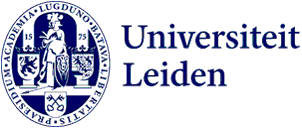Organisation
Initial results from the Employee Experience Survey

The Employee Experience Survey 2025 was conducted from 6 to 28 May and achieved a response rate of 55%. We would like to thank everyone who participated. The results are now available, both at the university level and for individual departments and units. These outcomes may vary across different organisational levels. What do these early findings reveal and how can we build on them?
Strong culture of collaboration
The survey results highlight a strong sense of collegiality among staff, with collaboration and mutual support seen as central to the work environment. This helps create a positive atmosphere where people feel supported and learn from one another. Staff also say they feel safe expressing their opinions and ideas, making mistakes and speaking openly with others. They also value the flexibility the university offers in planning and carrying out their work.
Build greater trust
While staff rate the collaboration and the autonomy in their work, the survey also indicates there is room to strengthen trust, both within the organisation and among staff. The following areas for improvement emerged in relation to building greater trust:
- Mission and values: Many staff feel a connection to the university’s mission and core values. However, they would like to see these reflected more clearly in their everyday work. This includes promoting academic freedom, inclusivity and social safety.
- Strategy: There is a desire for greater clarity about the university’s strategic direction. Staff would like to see a stronger link between long-term plans and the everyday work at the university. Questions were also raised about priorities, particularly the perception that research and financial interests may sometimes take precedence over teaching and staff well-being? This highlights the need for more transparency about how and why decisions are made.
- Communication: Staff expressed a need for more timely, clear and transparent communication about policy changes and HR matters. They would like to be involved earlier and more frequently in decisions that affect them. Internal communication could be improved by making essential information more accessible and easier to find.
Importance of engaged leadership
Most staff report that their line manager is attentive to their well-being, expresses appreciation and supports their development. However, there is still room for improvement in areas such as aligning goals and responsibilities, motivating teams and ensuring staff feel recognised for their work.
Focus on talent and development
While the development opportunities within the university are widely appreciated, many staff indicated that high workloads limit their ability to make use of them. Continued investment in learning and development is essential to ensure all staff can continue to grow in their roles. There is also a need for clearer information about career opportunities and the availability of development budgets. Staff also note that training opportunities are not always consistent and may they depend on your role within the organisation.
Work pressure, unacceptable behaviour and social safety
Nearly half of the staff (45%) report experiencing regular to frequent work-related stress caused by high workloads, unexpected tasks and pressure to perform. Organisational changes and unclear instructions also play a role, often resulting in staff working additional hours.
Some staff also report experiencing unacceptable behaviour, such as bullying, discrimination or intimidation. Not all staff are familiar with the procedures for reporting such incidents or the support available to them. However, appropriate behaviour is regularly addressed and discussed.
How will we follow up on these results?
The survey results have been reviewed by the Executive Board, who recognise and acknowledge the findings. While many of these topics are already being addressed across the organisation, they require renewed focus and a more integrated approach. This includes:
- Building on trust
- Enhancing adaptive and engaged leadership
- Investing in talent and development
- Addressing work-related stress, unacceptable behaviour and social safety.
The Employee Experience Survey provides valuable insights not only at the organisational level, but also for teams, faculties, units and individual staff members. Action can be taken at each of these levels. We encourage you to discuss your team’s results and together – during your team meeting, for example. Reflect on collaboration, results and the team dynamics: What is going well? Where is there room for improvement?
Explore your dashboard
You can view your personal results and practical tips in the staff dashboard. Log in at Welliba for staff. Managers also have access to an additional dashboard showing aggregated results for your team (individual responses remain anonymous). Each manager has received an action plan template to help guide follow-up initiatives.
Timo Kos: 'One of our most important next steps is to improve communication and build on trust'
‘Thanks to everyone who took the time to complete the Employee Experience Survey. It’s encouraging to see that staff have strong relationships with their colleague and are willing to support one another. That is a vital foundation for addressing the areas that need improvement. One of our most important next steps is to improve communication and build on trust. In the current climate (marked by cost-cutting, conflicts, polarisation and political uncertainty), this trust can come under extra pressure. We are committed to tackling this together across the entire organisation. The same applies to the other key areas identified in the survey: leadership, talent and development, work-related stress, unacceptable behaviour and social safety.’
